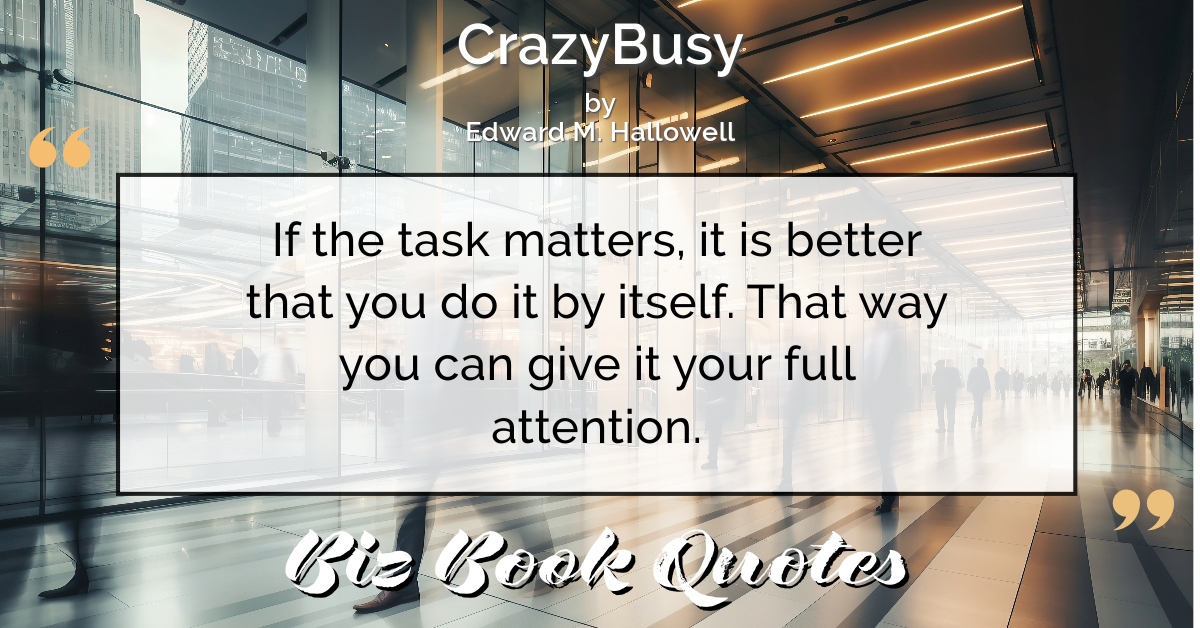 |
If the task matters, it is better that you do it by itself. That way you can give it your full attention.
|
021 |
 |
Most of the time we pay attention for reasons other than that we decided to. We are seduced, tantalized, subliminally redirected, unintentionally engaged by some extraneous stimulus, or focused on some task because we are compelled to be.
|
113 |
 |
This is in fact the only way a human can multitask effectively – practice one action so thoroughly that it becomes automatic, thus freeing up neurons to attend to matters other than the menial aspects of the task.
|
175 |
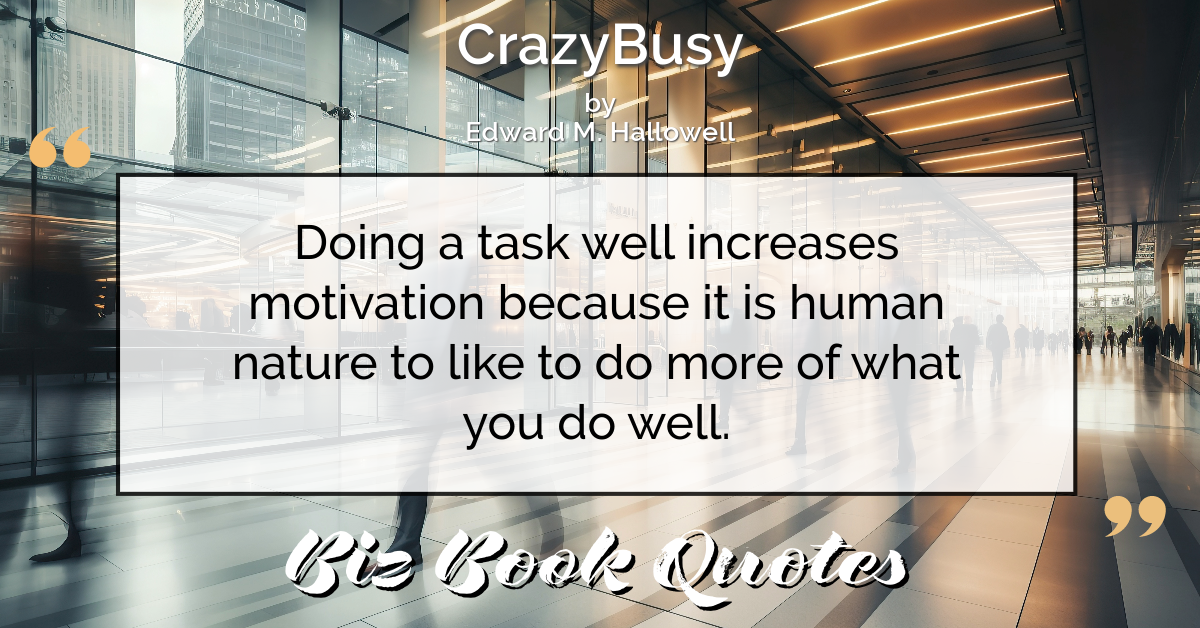 |
Doing a task well increases motivation because it is human nature to like to do more of what you do well.
|
180 |
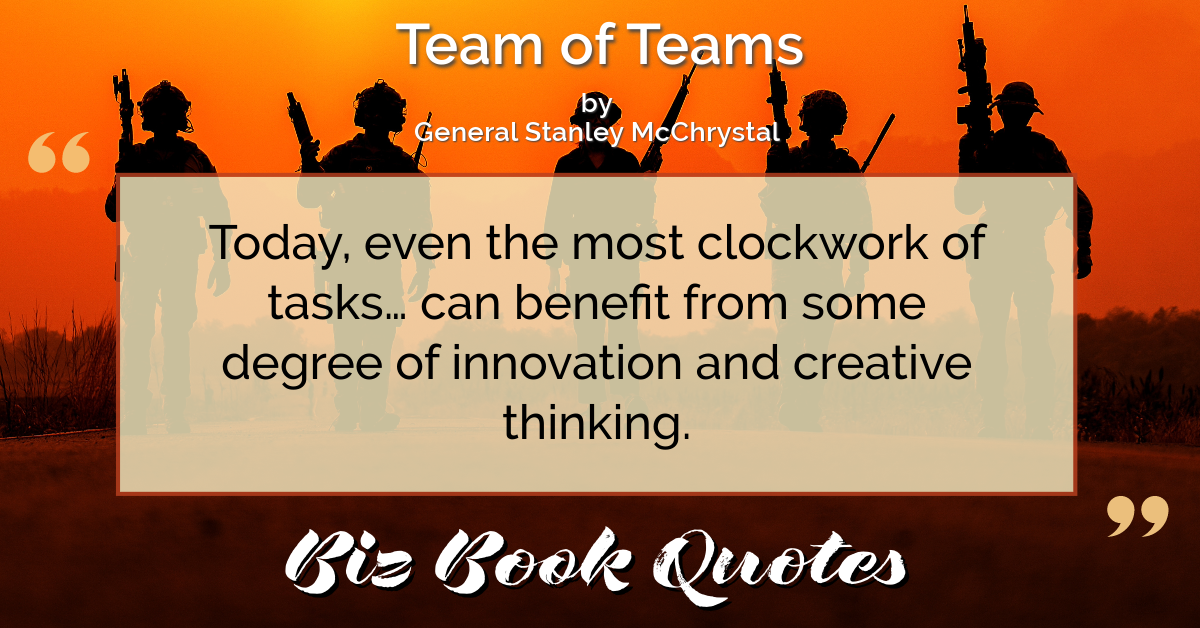 |
Today, even the most clockwork of tasks… can benefit from some degree of innovation and creative thinking.
|
211 |
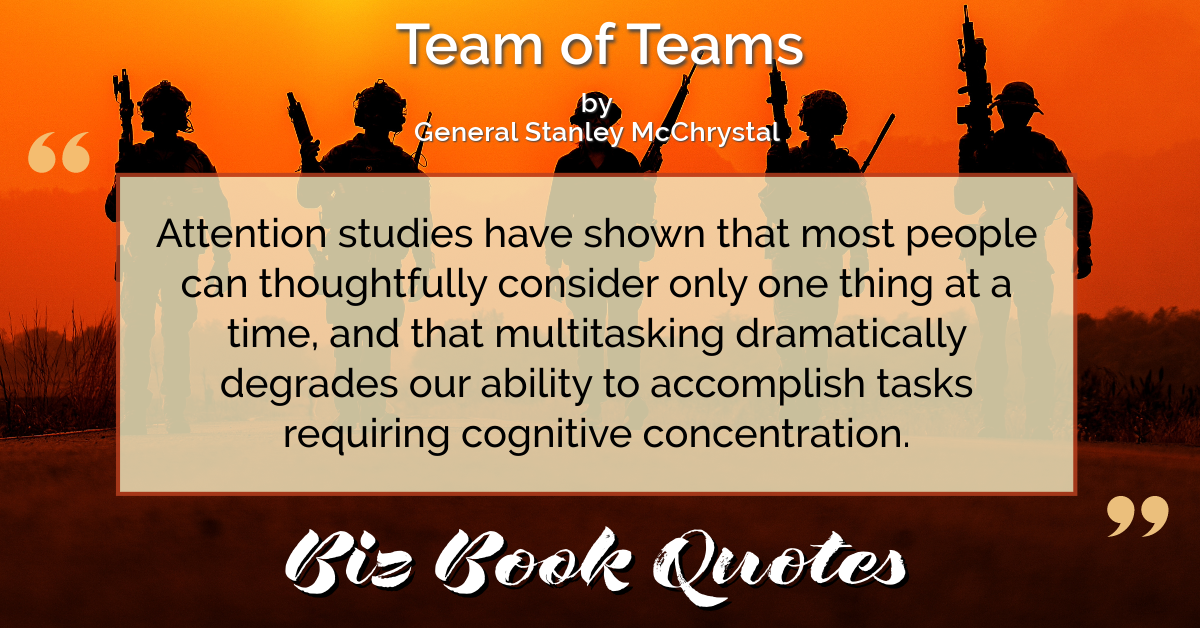 |
Attention studies have shown that most people can thoughtfully consider only one thing at a time, and that multitasking dramatically degrades our ability to accomplish tasks requiring cognitive concentration.
|
223 |
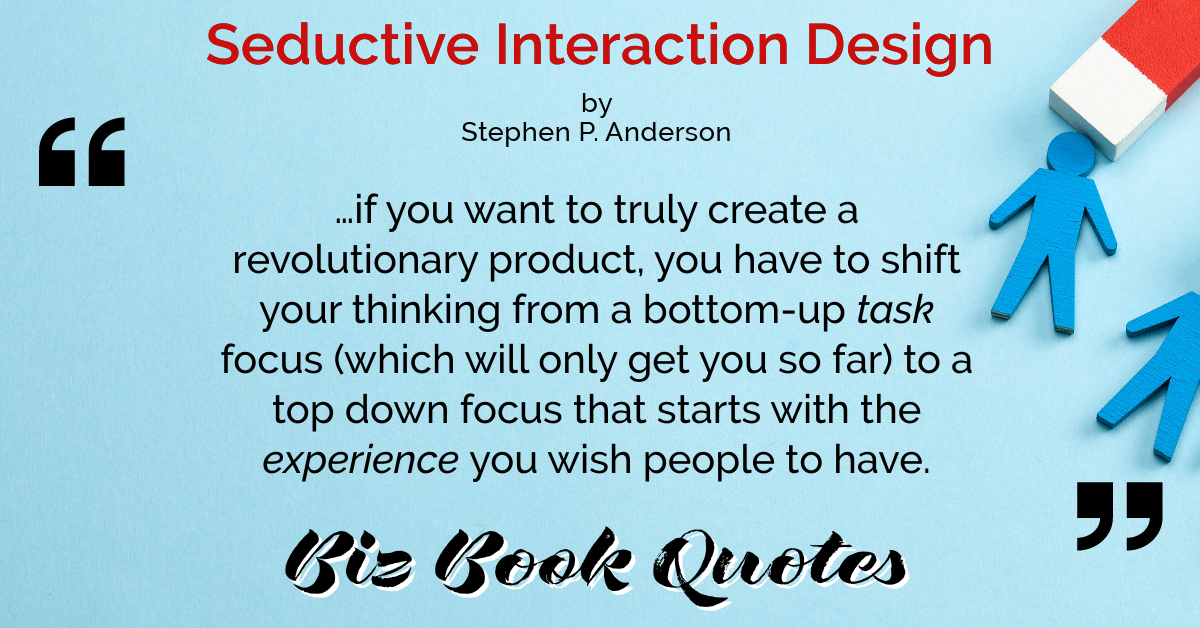 |
…if you want to truly create a revolutionary product, you have to shift your thinking from a bottom-up task focus (which will only get you so far) to a top down focus that starts with the experience you wish people to have.
|
013 |
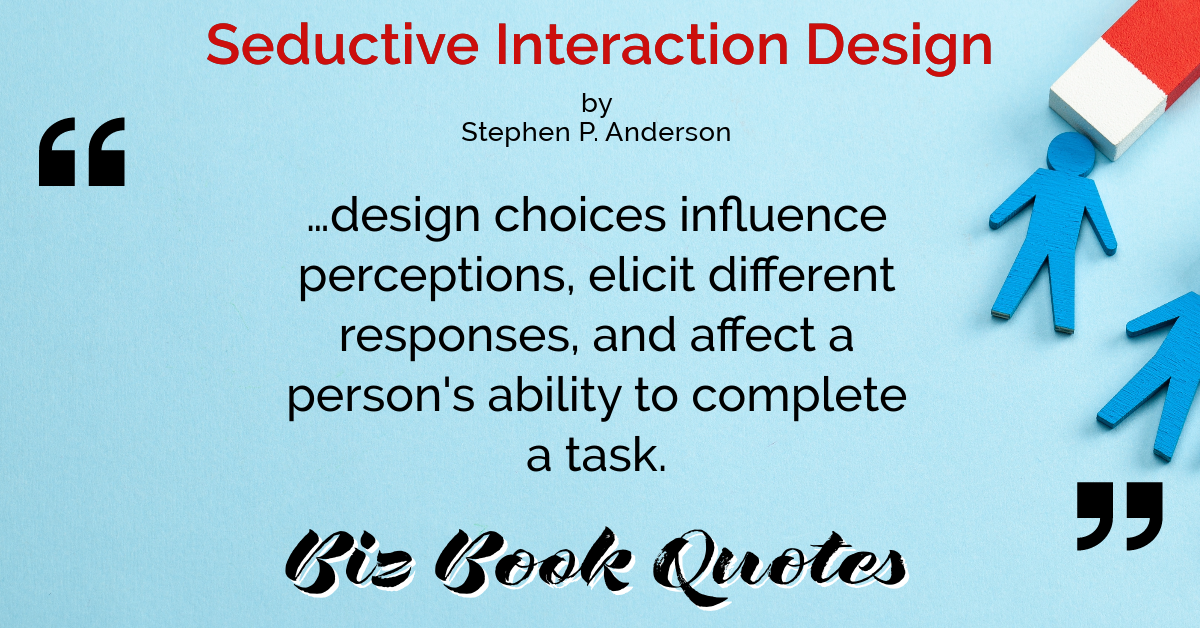 |
…design choices influence perceptions, elicit different responses, and affect a person’s ability to complete a task.
|
018 |
 |
We live in a world of infinite distractions and endless demands. Many of us juggle several tasks at a time and struggle to focus on any one of them for very long.
|
016 |
 |
Lack of absorbed focus takes a toll on the depth and quality of whatever we do, and it’s also an inefficient way to work, extending the time it takes to finish any given task.
|
016 |